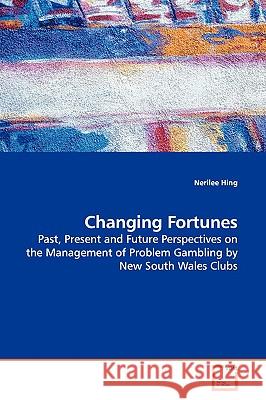Changing Fortunes » książka
Changing Fortunes
ISBN-13: 9783836483179 / Angielski / Miękka / 2009 / 636 str.
By 2000, clubs in NSW Australia collectively operatedaround 75,000 gaming machines or 8 per cent of high intensity machines worldwide. This study examines how these clubs havestrategically managed the issue of problem gambling. Stage Onetraces the development of machine gambling in thesenot-for-profit venues and explains how increased commercialisationdiminished their social contract and exacerbated problem gambling.Stage Two analyses how other factors also fuelled the emergenceof problem gambling as a significant social issue. Stage Threeconsiders the relevance of theoretical and applied models of socialresponsibility to NSW clubs in addressing problem gambling. Thefourth and fifth stages draw on interviews, case studies and a surveyto assess how NSW clubs interpreted their social responsibilitiesin gambling by the late 1990s, while Stage Six assesses theircongruence with stakeholder expectations. The seventh stage considersimplications of key developments during the late 1990s which sawthe clubs stance evolve from reluctant acceptance to pragmaticinvolvement when faced with government inquiries and responsiblegambling legislation.











